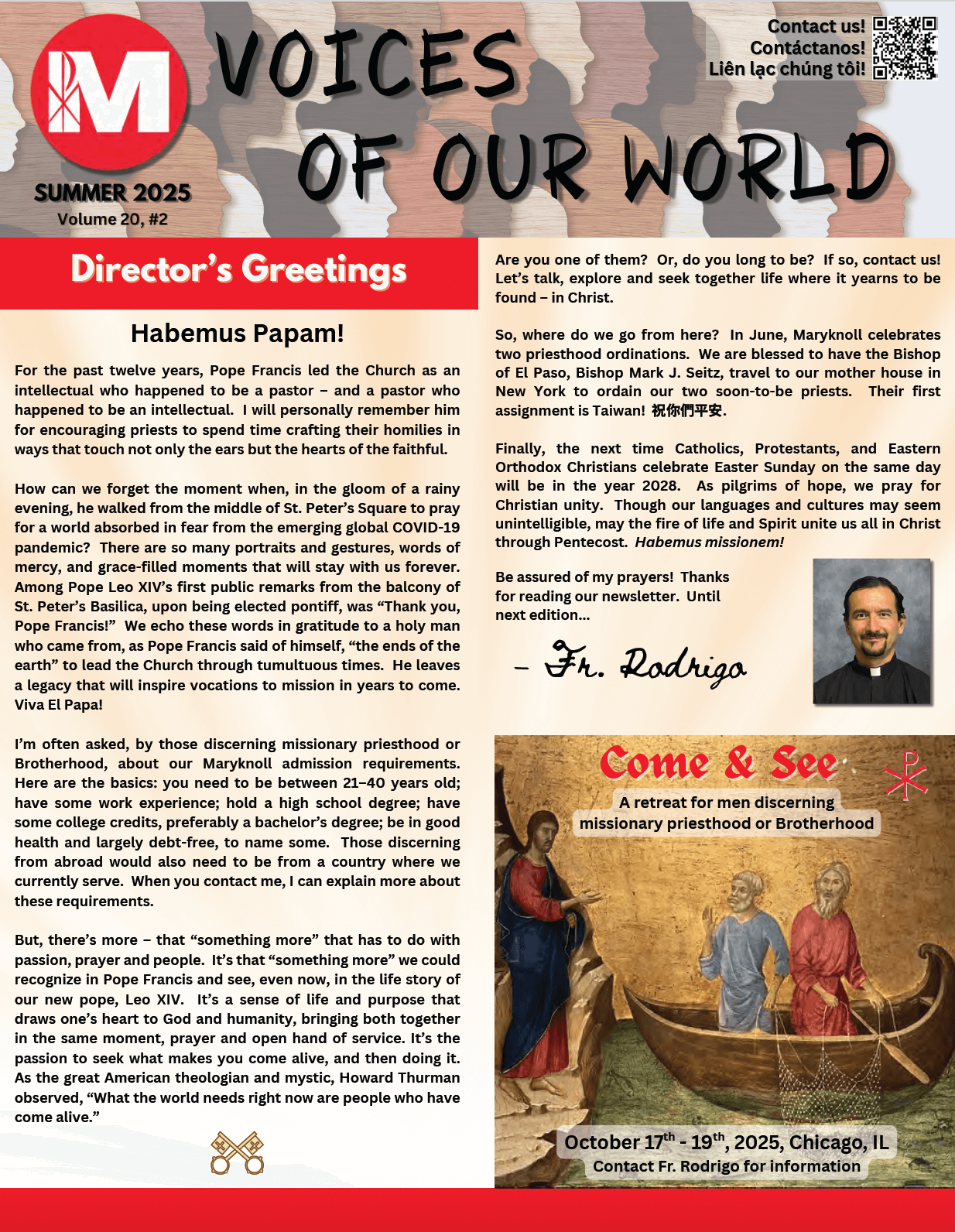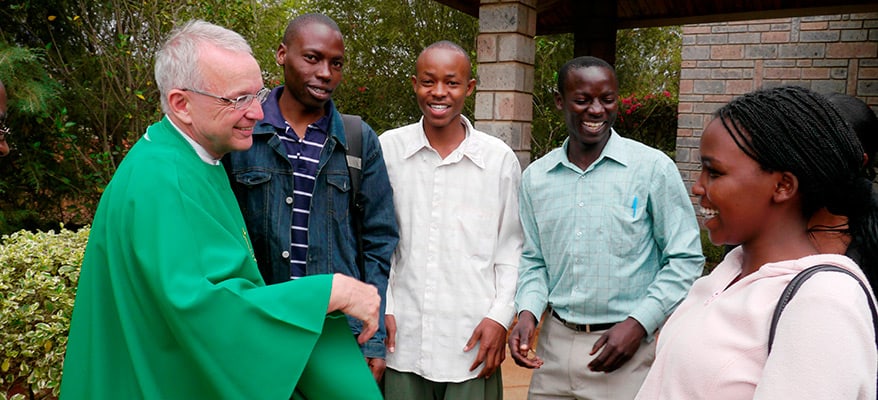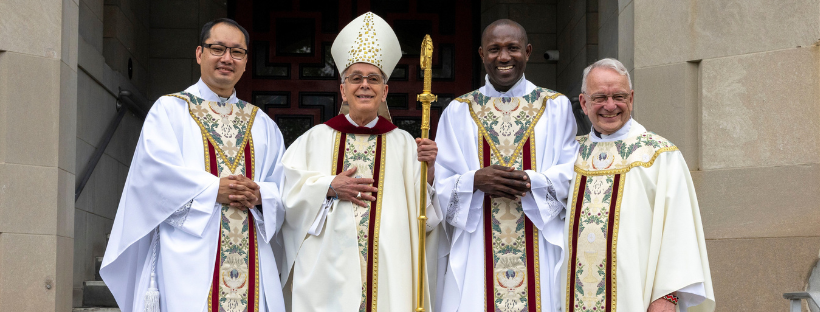Candidates have often told me they find the period after they’ve read the material, met with the vocation director, chosen the community, and prayed, and prayed, and prayed, the most difficult. They know that in order to finally address this calling that they’ve felt for so many years, they must move forward and begin the application process. This next step is where the rubber hits the road. Inertia sets in, and like an airplane circling an airport, their vocation remains in a comfortable and unobtrusive holding pattern.
This phenomenon affects most of us whenever we face a major life-decision. We face a choice. Either we choose to let the uncertainty and fear of the unknown hold us hostage, or we claim the freedom from fear that comes with being a child of God.
In his book Soul Brothers, Richard Rohr writes about Peter the apostle. He is the “everyman” – the regular guy – because like us he is blessed with an array of gifts that occasionally get overshadowed by fear and bad decisions. Its not until he realizes God’s unfailing love that Peter moves beyond his fears and begin his part in building God’s kingdom.
“On the personal level, which is where it all starts, Peter is a grand and honest statement about how we all come to God. This pattern is a great surprise, and for many a great shock and even a disappointment. We clearly come to God not by doing it right but ironically by doing it wrong.
…Biblical holiness has to do with God’s call, grace and faithfulness to us and not the faithfulness of our response, which is why the text goes out of its way to show Peter’s first response as almost always incorrect, and his second response almost always forced upon him by the goodness and patience of Jesus. Check it out for yourself in all of the Peter stories. He is the first in foolishness, and the first in surrender. That is the normal path. Until the cock crows, we do not get it. Until the cock crows, we do not know ourselves. We are all saved in spite of ourselves, and never is that more clearly illustrated that in the life of Peter. God loves Peter because God is good, and that is what Peter finally sees and what makes him fall in love with Jesus in return. Finally, Peter the everyman runs with John the beloved to the resurrection, always trying to catch up. … Once I knew that fallible, failing men like Peter were the norm, then I was able to hope for love – and find hope for myself.”
“What if I really don’t have a vocation? What if I have to quit?” I’m convinced these questions have plagued candidates (including myself!) for the last hundreds of years. The problem lies in allowing fear (of change, failure, etc.) and uncertainty to hold us hostage in a state of complacency. Like most major decisions, choosing to discern your vocation involves action, risk and ultimately trusting in God.
We know that not all of who enter will remain with us to the end. Part of every formation director’s ministry is to assist the student in discerning whether or not they are called to such a life. Those who leave have not failed. They have, in fact, succeeded in what they originally set out to accomplish – discerning God’s call. They can now go on and continue their journey in another community, marriage or as a single person. There is no failure in trying and finding it is not for you. We fail when we allow our fears to paralyze us from exploring our vocation.
Lent is a time for looking inward; a time to ask the hard questions. You may want to spend some time asking yourself:
- Am I truly responding to what I believe God is asking of me?
- Am I allowing fear (of failure or of not being “good enough”) to hold me back?
- Do I allow my fears to keep my vocation in a holding pattern?





